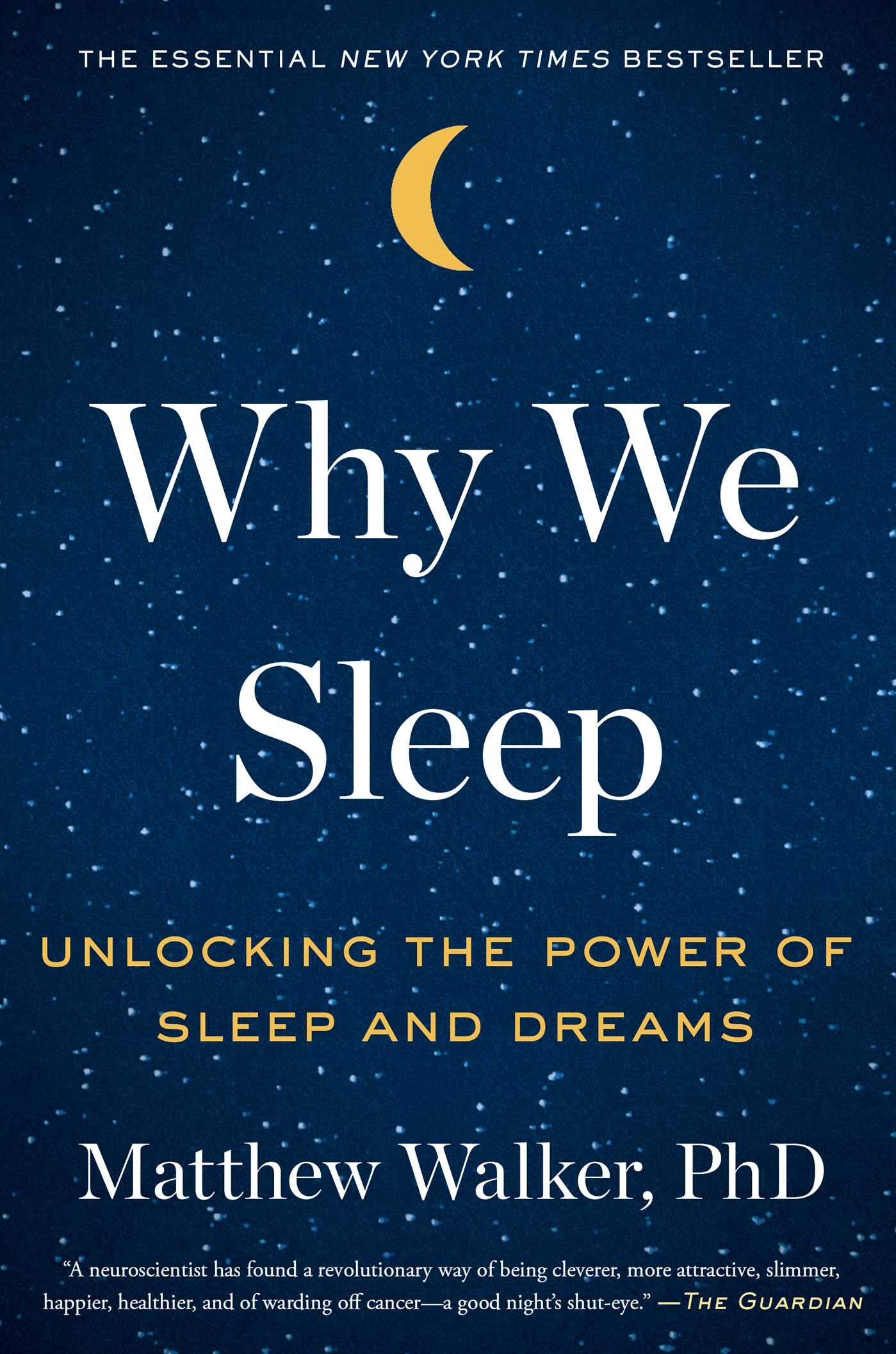Book Review: Why We Sleep
Published:
Matthew Walker is a UC Berkeley professor, a sleep researcher, and the author of Why We Sleep. The book catalogs the best research to date on the mechanisms and motivations behind sleeping. The conclusion, and the clear, urgent message of the author, is this: you probably should sleep more.

Here’s the paperback and audiobook.
Utility: ⭐⭐⭐⭐⭐ (5/5)
Writing: ⭐⭐⭐ (3/5)
This book was immensely helpful. It illuminated how my poor sleeping habits, starting in high school, have worsened my health and hurt my development. I appreciate how Walker consistently connects research findings with practical implications. The advice - found at the end of my notes - is reasonable and effective.
The writing style can be dry at times. Some sentences overstay their welcome, and there’s little in the way of narrative or suspense. I appreciate how the information was laid bare. But, if you need a narrative to stay hooked, you’ll find this book lacking. You should read it nonetheless.
Notes
How We Sleep
Sleep is regulated by your circadian rhythm and sleep pressure. Melatonin signals darkness and the onset of sleep. Sleep pressure is mediated by the buildup of adenosine - caffeine blocks adenosine receptors.
The three states processing - being awake, NREM sleep, and REM sleep - correspond roughly to reception (experiencing and learning), reflection (reinforcing new facts and skills), and integration (combining these elements to learn new facts). Muscle atonia prevents you from acting out your dreams.
Most adults sleep in a monophasic pattern, with a one long sleep period. Many hunter-gatherer tribes sleep in a biphasic pattern, with a thirty to sixty minute nap in the afternoon (reflected in some modern cultures as siestas). Biphasic sleep seems to be associated with shorter life.
In young children, deep NREM sleep likely drives brain maturation. Older adults also need sleep, although the quantity and quality of NREM sleep often declines. Seniors often sleep earlier, an effect compounded by afternoon napping.
In the real world, sleep deprivation dampens student performance and leads medical residents to make fatal mistakes. Companies like Google and NASA know how to harness the power of sleep by encouraging lengthy slumbers and workday naps.
Why We Sleep
Sleep protects every aspect of physical health. Sleep deprivation shortens lifespan, with causal links to heart disease, obesity, dementia, diabetes, and cancer. Each year, the switch to daylight savings time is marked by a spike in heart attacks. Short sleep increases hunger, decreases self control, decreases testosterone levels, and guts the immune system.
It plays equally important roles in mental health. A lack of sleep guts attention, leading to thousands of lives lost in traffic accidents. It also leads to emotional distress, inability to form memories, and may contribute to Alzheimer’s disease. Sleep is also a crucial facilitator of creative thinking.
Recovering from sleep loss is tough. Humans are poor at judging how sleep-deprived they are. Neither naps nor a weekend of sleep can recover from a week of short sleeping.
Lessons Learned
To improve your quality of sleep:
- Adopt a regular sleep schedule. Use an alarm, if necessary.
- Limit exposure to artificial light in the evening hours. Filters for blue light can help.
- Don’t drink alcohol before sleeping. It powerfully suppresses REM sleep.
- Sleep in a cool environment (65 degrees Fahrenheit). A hot bath helps by drawing out body temperature when you exit. Avoid exercise right before bed.
- No pills. They are associated with increased mortality and hardly improve sleep length.
- If you have sleep issues, try cognitive behavioral therapy for insomnia - advice includes cutting napping, destressing before bed, removing clocks from view, and going to bed only when sleepy.
- Develop a bedtime routine.
- Don’t eat large meals before bed.
